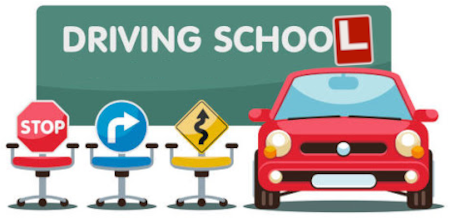 "Will driver education ever be made mandatory?" asks a DriveSmartBC reader. "Why don't we teach driving in high school?" While I would like to see mandatory training I don't think that this could be done well in high schools because of the lack of an opportunity to actually drive under the supervision of a qualified instructor.
"Will driver education ever be made mandatory?" asks a DriveSmartBC reader. "Why don't we teach driving in high school?" While I would like to see mandatory training I don't think that this could be done well in high schools because of the lack of an opportunity to actually drive under the supervision of a qualified instructor.

Schools May Teach Driving
The current provincial school curriculum does make provision for driver training related studies from grade 8 onward in Health & Career Education and Career & Personal Planning.
ICBC Provides Teaching Materials
ICBC provides course content packages free of charge that the teachers can use in these programs if they choose to. The content in the packages is geared to have students anticipate the consequences of bad choices made while driving and to develop a positive attitude about sharing the road.
Quality of Instruction
Speaking from my own point of view, I learned more in the hours spent behind the wheel with a qualified instructor sitting to my right and providing constant guidance than I did in the classroom.
While some of the necessary knowledge could be learned in the classroom, few parents are prepared to provide on road training thoroughly and in proper progression. I suspect that even fewer public schools would be interested in offering this type of instruction.
Private Driver Training
This leaves us with private driver training schools. They are prepared to do the most comprehensive job of preparing a new driver, but at a price.
Mandatory Driver Training
Should it be mandatory? When ICBC changed the time reduction in the GLP for drivers who took training, enrolment immediately suffered. For the most part, we're clearly not prepared to take training unless there is a tangible benefit other than safety.
Perhaps it is time for BC to join Quebec and Saskatchewan in making driver training mandatory for new drivers.
Learn More
Share This Article
That may seem like a silly question, but while the venue - a High School with, presumably, a teenage population - may seem like an ideal place to teach driving, it isn't that simple.
By way of analogy, when students attend Science Class, this will typically necessitate some sort of Laboratory, rather than a regular classroom. How about Sports? That requires a gymnasium, and/or playing fields.
So while a knowledgeable, qualified teacher can certainly teach 'about' driving in the general sense in a classroom - I've done it myself, over hundreds of hours of class time - there's a limit to how much information can be meaningfully presented and taught. Driving is, primarily, a visual skill. A deaf and dumb person with no sense of taste or smell could learn how to drive; but not a blind person. And teaching a driver how to use their eyes, their vision, effectively - both in terms of directing the vehicle and identifying hazards - requires real streets and roadways; one can only theorize so much in the classroom.
Driving is, also, a physical skill. How on earth do you teach that in a classroom? You can teach about it in theory, draw diagrams, explain concepts, but when all is said and done the new person has to learn the 'feel' of the vehicle controls and the response from inputs made by the driver.
But also, teaching any subject requires a sufficient degree of knowledge and expertise on the part of the teacher, and most High School teachers are no more qualified than anybody else; possessing a driver license doesn't make one any kind of an expert. A mathematics teacher probably couldn't teach biology an more than a chemistry teach could teach grammatical & literary skills. So it would be absurd to assume that any of these teachers would be capable of teaching driving, wouldn't it?
Practical driving instruction also has to be taught in real time in an uncontrolled environment that is constantly changing. Training instructors how to teach effectively in the car - and survive - is a challenge in itself. This is why it's mandatory in BC for Driving Instructors to be properly licensed. They are also required to provide a suitably equipped vehicle, something else that's lacking at your local school.
So perhaps the question to be asked is 'Why should we teach driving in schools?'.
- Log in to post comments
This is the response from my son in Saskatchewan:
I think that Saskatchewan does a good thing with mandatory driver training. They learn a lot in those hours, including what not to do while others are in the vehicle!!
They have 4 children, son age 21, daughters 19 and 16 and another son age 14. The 3 older ones have all been through the Saskatchewan program and are very good drivers - I'm their grandmother and I have, and would again, been a passenger in the vehicle when they were driving through those extreme weather conditions.The youngest son will soon enter the program.
Please put any pressure you can on BC to copy Saskatchewan's example.
- Log in to post comments
- Log in to post comments

Which aspect of driving do you expect a school to teach?